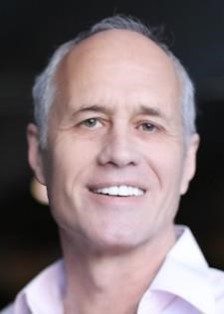IT’S ALL ABOUT THE AUDIENCE
We hope you enjoy the article below.
If you are a screenwriter looking to network, learn more about the craft or get feedback and exposure for your own projects,
click here to become a Talentville Resident and join our growing community of screenwriters and Industry professionals.

Screenwriting Lesson
Viewed by: 12 Residents and 249 Guests

IT’S ALL ABOUT THE AUDIENCE
By Jeff Kitchen
When you go into a movie with major expectations, what specifically do you expect? You’ve heard that this movie will rock your world, and you’re excited. But can you put your finger on exactly what you expect from it? Obviously, this will vary with different genres—you expect one thing from an intense drama, something else from a romantic comedy, and yet something else from an action thriller. Examine your expectations as closely as possible.
Audience Response is Everything
Remember, it’s your job as a screenwriter to satisfy audience expectations. Anyone who has performed live knows intimately that it’s all about the audience. Some screenwriters who sit in their rooms concocting wild stories aren’t necessarily trained to think in terms of the audience. But that’s what this medium is all about: It’s a performance medium intended to transform an audience.
The Power of a Movie Resides in the Response of the Audience
A movie playing to an empty theater has no power at all—it’s just shadows on the wall. The power of the film resides in the response of the audience. I urge you to make a professional study of the audience—your audience. First, pay attention to the buzz about an upcoming film. Why do people want to see it? Are they electrified or just curious? One a scale of 1 to 10, how intense are their expectations?
Make a Professional Study of Audiences
Next, study audiences as you’re entering the movie theater. Examine your own expectations as you go in. Gauge the electricity in the air.
While the movie plays, feel out the audience response.
• Are they thrilled?
• Scared?
• Let down?
• Intoxicated?
• Bored?
• Exhilarated?
Then, when the movie’s over, stand outside the theater and watch the audience exit. Study the expressions on their faces. Listen in on their reactions. Be passionately curious about how your fellow moviegoers react to the movie you’ve just seen together.
Who is Your Audience and What Do They Want?
When Star Wars I: The Phantom Menace came out in 1999, people camped out at Grauman’s Chinese Theatre six weeks in advance. On opening night I joined them, specifically in order to study audience expectations. I interviewed the fans, asking, “What are you expecting?” They were pumped! I got answers like, “Oh man, I saw the first Star Wars when I was seven and it was the greatest movie ever! I’m expecting a ride to the moon!” When the theater let the first couple hundred people enter, they ran inside screaming, jumping, and whooping it up. Those fans really had it—that intense audience expectation—and I wanted to stick my finger in that electric socket.
Don’t Underestimate Your Audience
Director Billy Wilder said, “I never overestimate the audience, nor do I underestimate them. I just have a very rational idea as to who we’re dealing with, and that we’re not making a picture for Harvard Law School, we’re making a picture for middle-class people, the people that you see on the subway, or the people that you see in a restaurant. Just normal people.”
How Do You Want Your Audience to Feel When Your Movie’s Over?
Study your own reactions. Be your own guinea pig. You’re an audience member, too, and you can see right into your own deepest responses.
Observe your body chemistry afterward.
• Are you tripping on adrenaline?
• Is your gut churning?
• Are you in a state of shock?
Examine your mood.
• Are you giddy and in love?
• Do you feel energized, infatuated, distressed, inert, crazed, pissed off, silly, serious, demonic, transfigured?
• Did the movie match up to your expectations?
Think about how you feel when you come out of a truly great film. Consider the various levels of exhilaration, satisfaction, passion, adrenaline, happiness, clarity, fury, energy, or love that you’re feeling. As a screenwriter, this is how you want your audience to feel.
A Powerful Ending Changes the Audience
So as you develop and write your script, focus very specifically on how you want the audience to feel when it’s over. What do you have in you that you want to put into someone else? The more specifically you can pinpoint that, the better you’ll be able to get it across. If you don’t know what you’re up to, then how can you expect the audience to get it? It’s about clarity of intention, clarity of vision, focus, deliberate methodical creation of a mood in the audience. You’re creating a magic spell, actively changing how the audience feels.
---------------------------------
About Jeff Kitchen

Jeff Kitchen runs multiple training programs for scriptwriters at http://script.kitchen
The author of Writing a Great Movie: Key Tools for Successful Screenwriting, Jeff has taught writers for over thirty years and is one of the top-rated teachers in the industry. Having taught playwriting on Broadway and story executives at all the major Hollywood studios, his former students have been nominated for multiple Emmys and Oscars, including Best Picture and Best Adapted Screenplay.




Comments on IT’S ALL ABOUT THE AUDIENCE